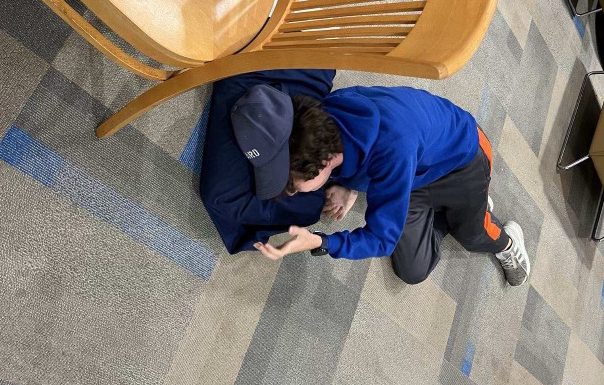Timothy Lomperis, Ph.D., is no stranger to real-life experiences with the international relations and eastern politics topics he lectures about. Lomperis, a professor of political science at Saint Louis University, has made a career out of exploring and conveying the ideas and history that have shaped the world of today.
Lomperis was born in “an extreme southern province” of India, one degree higher in latitude than the southernmost tip of the country. He spent the first seven years of his life in a small village with his parents, both Lutheran missionaries.
Lomperis’ experience growing up in India was different from that of children in the United States, he said.
“Indian children don’t wear clothes until they’re 7 or 8 years old,” he said. “They run wild with no discipline . Then, bingo! When they hit school age, they start a world of discipline and hard work.”
At age 7, like many other Indian children and the children of missionaries he grew up with, Lomperis went away to a Western-style boarding school 600 miles away from his parents. During grade-school, he saw his parents every five to seven months.
“We were all sent away [in grade school] because we were either to go to England or the United States for college,” Lomperis said. He would attend Augustana College, a Lutheran college in Rock Island, Ill., and visit his extended family in Rockford, Ill., during holidays.
At Augustana, Lomperis said he was more interested in history than political science, he also enjoyed the study of rhetoric.
“One of the best courses I ever took was a course on studies in persuasion,” Lomperis said. “This course totally changed the way in which I related to other people.”
He said the persuasion class taught him two things: “To know your audience, and to identify with them. Walk the walk that they walk.”
Lomperis said he has employed this tactic inside and outside of the classroom.
After graduating from Augustana, Lomperis spent four years as a U.S. Army intelligence officer and served two tours of duty in Vietnam. Students in his political science classes at SLU have experienced Lomperis’ fleeting, elusive references to his time in the military, he said.
“I have seen things that have made a deep impression on my outlook on life,” he said. “Some things I talk about, as in my international relations class . some I am not at liberty to talk about.”
“I was a liaison officer,” Lomperis said. “I had to relate to different intelligence agencies . [and I] made nice to colonels of intelligence agencies. [I was supposed to] sniff around for military coup plotting and write reports on political alignments.
“I was basically a little sneak, but they were on to me,” he said. Luckily, “there weren’t any coups on my watch,” he said.
Lomperis earned a master’s degree in international relations and met his wife, AnaMaria Turner Lomperis, Ph.D., at Johns Hopkins University when they were both graduate students. He then received his doctorate in political science at Duke University, and left to teach international relations courses at Louisiana State University. Lomperis then returned to Duke, where he taught for the next 11 years. In 1994, he became a professor at West Point.
In 1996, both Lomperis and his wife were offered positions at SLU.
AnaMaria Lomperis is an associate professor and associate chair of the department of health management.
“It is very unusual; we’re very lucky,” Lomperis said of both he and his wife receiving positions at the same institution.
In 1998, he was called back to the U.S. Military Academy at West Point, where he had taught for two years before coming to SLU, to moderate a “three-day slugfest” between the Maryknoll Catholic missionary order and West Point officers over a proposed demonstration by members of the School of the Americas.
At SLU, Lomperis has taught classes on Asian politics, international relations and international warfare. He said that central to his courses is the idea that “political questions don’t yield black and white answers. The study of politics is at its most essential when we’re talking about values,” he said.
“[SLU’s] core curriculum is very supportive [and is] a congenial climate for my version of political science,” Lomperis said. “[SLU students] are the most value-centered students I’ve ever taught, and I appreciate that very much.”






